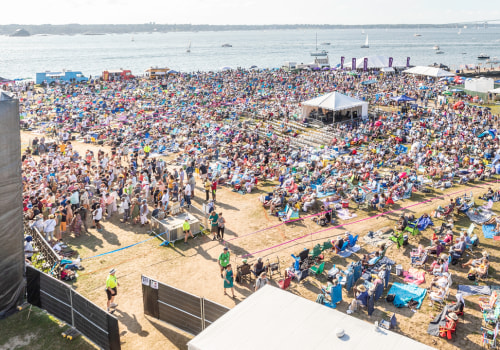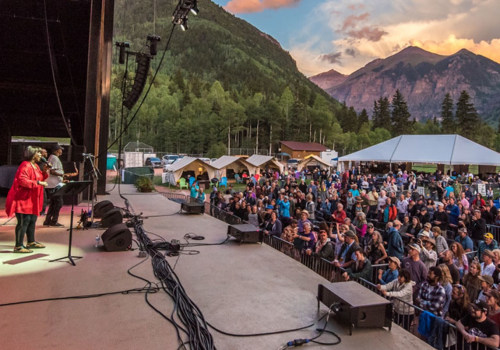Jazz music has been around for over a century, and it has taken many different forms since its inception. From traditional to swing, from bebop to cool, from free jazz to fusion and more, jazz has been a major influence in the music industry. Thanks to new talents such as Kamasi Washington, Sons Of Kemet and Nubya Garcia, jazz is back in fashion. But who are the best jazz musicians of all time? Let's take a look at the top 20 jazz musicians who have shaped the genre and left an indelible mark on the music world. We start with Duke Ellington and Louis Armstrong, the latter considered by many occasional fans to be the “founder” of jazz itself. Jazz music has been around for over a century, and it has taken many different forms since its inception. From traditional to swing, from bebop to cool, from free jazz to fusion and more, jazz has been a major influence in the music industry. Thanks to new talents such as Kamasi Washington, Sons Of Kemet and Nubya Garcia, jazz is back in fashion. But who are the best jazz musicians of all time? Let's take a look at the top 20 jazz musicians who have shaped the genre and left an indelible mark on the music world. We start with Duke Ellington and Louis Armstrong, the latter considered by many occasional fans to be the “founder” of jazz itself.
Chesney Henry Baker was born in Oklahoma before moving with his family to California, where his chiseled good looks and seductive trumpet tone helped him become the poster boy for the West Coast “Cool School” scene of the early 50s. When Baker began singing on his records in 1953, in an androgynous and honeyed song, he substantially expanded his audience and even won an acting role in a Hollywood war film, Hell's Horizon. But music was Baker's main interest, although his career was checkered, defined by many ups and downs due to a long period of heroin addiction. He died at the age of 58 after mysteriously falling out of the window of a hotel in the Netherlands. William “Count Basie” was born in Red Bank, New Jersey, but first made his mark as part of the Kansas City jazz scene in the late 20s and early 30s, during a spell playing the piano in Bennie Moten's influential group.
After that, he formed his own orchestra, whose powerful horns, tight ensemble work and syncopated rhythms came to embody the sound and style of the swing era of big bands. After World War II, when swing music went out of style, Basie disbanded his band for a while, only to restart his orchestra in 1952 and enjoy a revival with the help of albums such as April In Paris and Atomic Basie, which re-established his position among the best jazz musicians of all time. Frayed and cared for but luminously moving, Holiday's voice is one of the most recognizable in jazz. Nicknamed “Lady Day”, she was born Eleanora Fagan and endured a tough childhood growing up in Baltimore, but found solace in singing during her adolescence. Holiday recorded his first albums at the age of 18, in 1933, and, at the end of his 40s, he was a real jazzstar recognized for the deep sensation he could invest in his performances.
A combination of drug addiction and alcoholism conspired to lower the curtain early in Holiday's life; she died at 44 from cirrhosis of the liver. Despite the brevity of her career, Holiday's influence on other singers has been profound and can still be felt today in contemporary artists ranging from Cassandra Wilson to Celeste. From Allentown, Pennsylvania, Jarrett was a child prodigy who began playing classical music before turning to jazz. After performing with Art Blakey's Jazz Messengers and Miles Davis' electric band in the 1960s, he established himself as a soloist, first on Atlantic Records, where his unique mix of bebop, free jazz, gospel and country elements marked him as unique. But it was on the independent German label ECM that Jarrett released his iconic 1975 album The Köln Concert ,and his career really flourished.
Jarrett has worked in many formats both in jazz and classical music with duets trios quartets and even orchestras but he is best known for the improvised solo piano recitals that first brought him fame in the 70s. This revolutionary alto saxophonist from Texas shook up the jazz world in 1959 when Atlantic Records released his third album prophetically titled The Shape Of Jazz To Come. Bypassing conventional chord changes Coleman's radical free jazz manifesto redefined concepts of melody and harmony with his unfettered improvisations. Although he recorded for a variety of different labels arguably some of his best music was made in late 50s on Atlantic Records where he recorded iconic albums The Clown and Blues & Roots. Nicknamed “Bird” Missouri-born alto saxophonist Charlie Parker was main architect behind bebop a virtuoso style of jazz performed mainly by small groups characterized by fast melodies over complex chord sequences and highly syncopated rhythms. Redefining jazz music as an art Parker together with co-pilot Dizzy Gillespie sparked musical revolution that shaped jazz from mid-40s to 60s.
Although heroin addiction tragically ended Parker's life when he was 34 his influence can still be felt today and his immortality powers ensure their continued placement among best jazz musicians world has ever known. Whiny blues cries and sanctified gospel cadences feature prominently in music this visionary bassist and composer whose career flourished 1950s. Originally part of bebop scene once playing alongside Charlie Parker Dizzy Gillespie short-lived supergroup called The Quintet Mingus developed very personal style that referred past jazz alluding ragtime New Orleans “trad jazz” while pushing music towards freedom styles avant-garde. He recorded for variety labels during 35-year career but arguably some best music made late 50s on Atlantic Records where recorded iconic albums The Clown Blues & Roots. These are just some of the great names that have shaped jazz over its long history. From Duke Ellington to Charlie Parker these musicians have left an indelible mark on music world that will never be forgotten.







